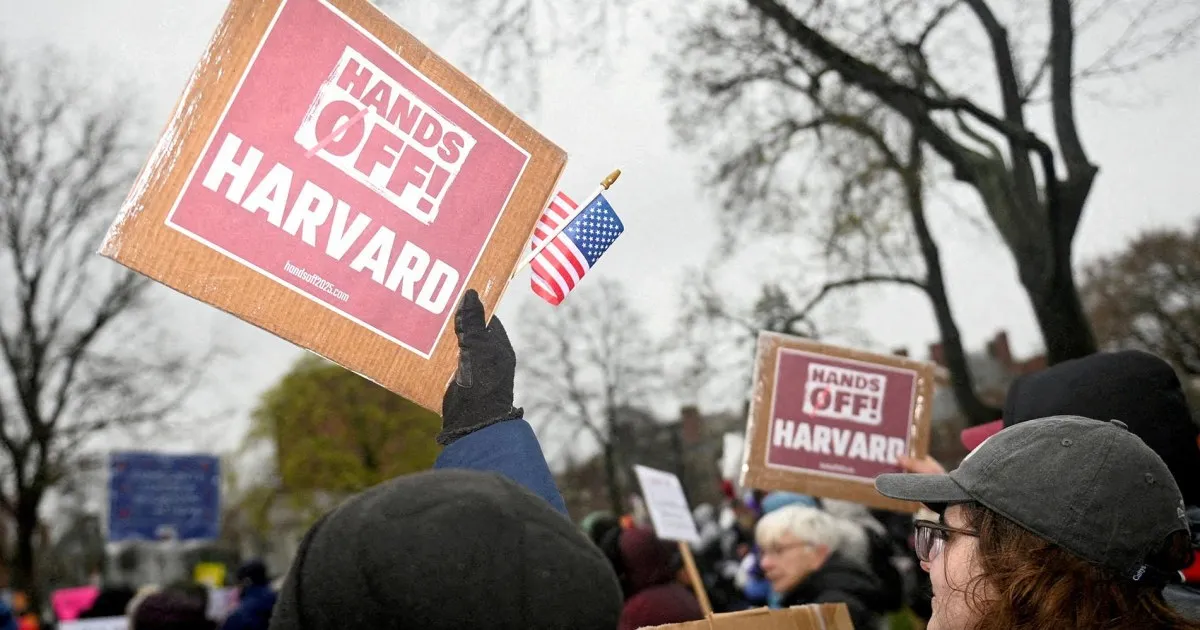
President Donald Trump recently made headlines with a public threat to revoke Harvard University's tax-exempt status, a move that legal experts warn could have unintended consequences. In a post on Truth Social on Friday, Trump declared, “We are going to be taking away Harvard’s Tax Exempt Status. It’s what they deserve!” While the IRS indeed has the authority to take such action, Trump's social media statement complicates the situation significantly.
Genevieve Lakier, a First Amendment expert at the University of Chicago Law School, emphasized that while the IRS could theoretically strip Harvard of its tax status, such an action cannot be driven by the president's directives. “There’s a way they could do this,” Lakier explained, but added that “it can’t be at the behest of President Trump.” Lakier described Trump's remarks as “dumb” and “not helpful,” citing a law that prohibits government officials from instructing the IRS to investigate taxpayers as a significant barrier.
This isn't the first time Trump has targeted Harvard. Last month, he suggested the university be taxed as a political entity if it continued to promote what he termed “political, ideological, and terrorist inspired/supporting ‘Sickness?’” He argued, “Tax Exempt Status is totally contingent on acting in the PUBLIC INTEREST!”
Edward McCaffery, a tax law professor at the University of Southern California Gould School of Law, agreed with Lakier, stating that Trump's politicization of the issue raises concerns about retribution rather than legitimate public policy. This aspect could be crucial if Harvard mounts a defense against any IRS action.
Jeffrey Tenenbaum, a Washington, D.C. attorney specializing in nonprofit organizations, noted that the IRS would face an “uphill climb” in any attempt to penalize Harvard, a process that could potentially extend over several years. Following Trump's post, Jason Newton, a spokesperson for Harvard, asserted that the institution would vigorously contest any efforts by the administration to alter its tax status, emphasizing that the government has historically exempted universities from taxes to support their educational missions.
The law Lakier referenced, titled “Prohibition on executive branch influence over taxpayer audits and other investigations,” specifically prohibits the president, vice president, and their staff from influencing IRS investigations. The 1998 statute states that any attempt to direct an IRS investigation is unlawful. “That’s meant for situations like this, where there are efforts at influence by the president,” Lakier noted, highlighting the potential for Trump’s comments to be seen as intimidation.
Legal precedent suggests that if Trump were to claim he did not direct action against Harvard, it still raises issues of intimidation, especially since Harvard is already suing his administration over the cessation of federal funding. Lakier pointed out that this scenario could be interpreted as a “reasonable threat” and remains unconstitutional under the First Amendment.
McCaffery mentioned that while the IRS could initiate actions to revoke Harvard’s tax status, such a move would require thorough audits and investigations, similar to the case of Bob Jones University, which lost its tax-exempt status due to discriminatory policies. He noted that the process could take considerable time, and any decision made by the IRS could be appealed in court, where further legal battles could ensue.
Tenenbaum reinforced this by stating that the IRS must conduct a comprehensive examination before revoking tax-exempt status, a process that is neither quick nor simple. “Presuming the law is followed, that’s the only way for the IRS to revoke the tax-exempt status,” he explained.
Ultimately, McCaffery expressed skepticism about the IRS's ability to successfully revoke Harvard's status, particularly given Trump's ongoing commentary on social media, which he believes undermines the administration's legal arguments. “Glib references and making it seem like the president is fighting with the board of trustees is not helpful,” he said, suggesting that Trump's unilateral statements could complicate any legal proceedings.